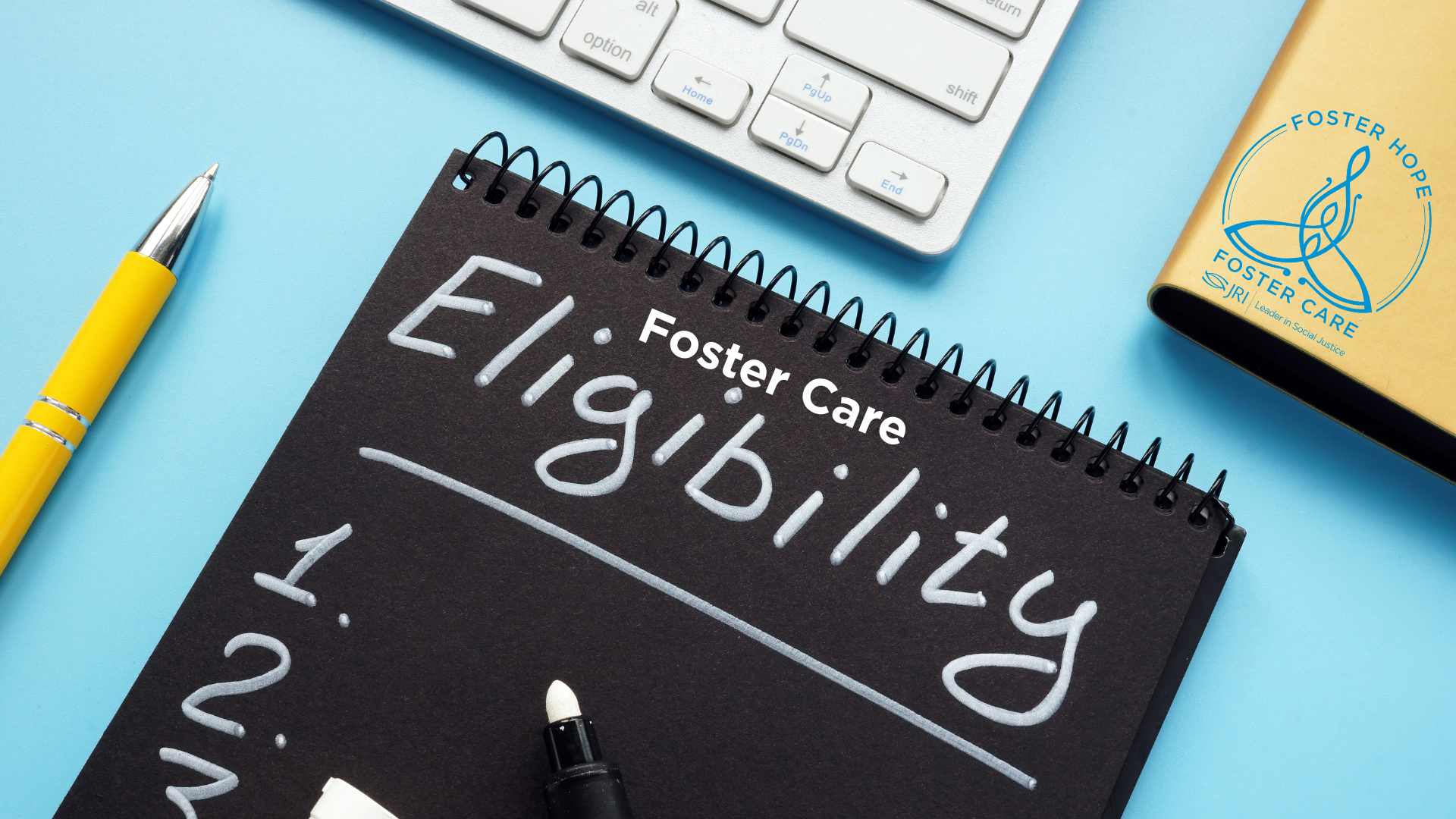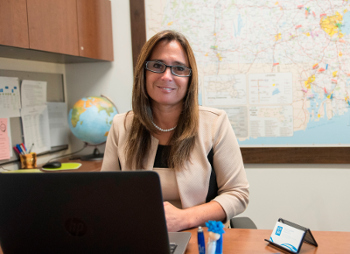Do you have a question about JRI services?

Who is eligible to become a foster parent?
This is a question we are often asked. Let’s dive into some of the specifics!
The Commonwealth of Massachusetts licenses or authorizes contracted agencies to license foster and adoptive parents in our state. There are specific criteria that must be met in order to qualify to apply. Once you qualify to apply, the assessment begins.
Let’s start with the application qualifications in this post, and we will follow it up with Housing Standards Assessment and finally Assessment Qualifications in subsequent blog posts.
Eligibility Qualifications
- Live in MA- To be a Massachusetts foster parent (either as an Unrestricted home, which means fostering directly through Department of Children and Families AKA DCF, or as a Comprehensive Foster Care home, which means fostering through one of the contracted agencies like Justice Resource Institute AKA JRI) you must reside in our state. At JRI, we serve many communities in MA, but not all, so please check with us about where you live. If we don’t serve your area, we will do our best to direct you to an agency that does.
- Household Members are US Citizens or Permanent Residents of the US- This is to prevent a potential disruption in care were someone to have to exit the US due to immigration status. This could be very upsetting to a child. All races, ethnicities, cultures, and countries of origin are welcome, but you must have one of these legal statuses within the US.
- Stable Housing- You can rent or own, but you must have a stable place to live. You cannot live in a shelter or an informal situation like a room-share or couch-surfing situation. Again, owning or renting are equally fine!
- Spare Bedroom- At JRI, we do not permit room-shares for children. They may not share with your children or with other children in foster care. We make occasional exceptions for siblings, but are careful because bedrooms can be scary and sometimes emotionally charged places for children who have experienced trauma. Curious about this? Please reach out so we can help you understand.
- Caregivers Are Age 21+- The minimum age for a JRI foster parent is 21; DCF foster parents can be as young as 18 years old. There is no maximum age for foster parents.
- Any Marital Status- You can be married, in a long-term relationship, single, divorced, widowed, etc.
- Gender/Sexual Orientation/Gender Identity- All are welcome.
- No More Than 3 Children under 18 Currently in the Home- Foster parents serving JRI or other contract agencies are permitted a maximum of 4 children under 18 living in the home at once. That number includes children placed through foster care, so when applying, there can be no more than 3 children under 18. If serving DCF foster care, they do allow for more children in the home.
- Safe Backgrounds- All household members age 15 years and older will have to complete a background check. The check includes criminal and child welfare checks, as well as the Sex Offender Registry Inquiry. Some charges, like low-level things such as driving without insurance, can be approved as long as the driver has demonstrated a period of compliance and it does not show a pattern of behavior. Other charges, like violent crimes, are disqualifying factors. If you are unsure of a charge or piece of your history, please be forthcoming. We can assess the situation and often advise you in advance whether something will be disqualifying or not.
- Have an Income that Meets Your Needs- Foster parents do not receive pay for fostering. There is a stipend with which foster parents are entrusted, but that is to go to the needs of the child. The stipend is not for a foster parent’s rent or mortgage, to help with personal needs, or to save money. The stipend is to be used for the child’s daily needs. You must demonstrate a consistent, stable income that meets your needs. Typically, this means work or a pension.
- Ability to Transport Children- You must have a vehicle and valid driver’s license/insurance/auto registration, or live in an area with abundant public transportation that you are committed to using. Foster parents are responsible for taking children to appointments and meetings. At JRI, we also complete a Driver’s Inquiry to ensure you have a safe driving record.
- Safe Pets- All pets must be safe with humans, up to date on rabies vaccinations where applicable; dogs registered with your town/city, and appear well cared for. If an animal displays aggressive behavior or has a history of bites/aggression, we will have to assess if it is suitable to place a child in the home, if there are safety precautions that must be in place, or if it is not possible. We will ask to meet and pet/handle all pets/animals when reasonable (*we do not pet fish or other underwater animals).
- Gun and Weapon Safety- For folks who own guns and weapons, they must be stored in a locked safe. Guns must be stored in a safe, separate from ammunition. They must be unloaded and trigger locked. Ammunition must be stored separately in a different safe. The safe must be inaccessible to children. We will ask you about any guns or weapons during our first conversation and help you identify the steps you need to take to be compliant. We will further investigate this during the Housing Standards Assessment meeting.
- Water Safety- Pools, Jacuzzis, and large bodies of water on your property must be safe for children. We will ask you about this and discuss safety precautions necessary. We will further investigate this during the Housing Standards Assessment meeting.
- Bedrooms on First or Second Floor- Bedrooms must not be on or above the third floor, unless there are two appropriate methods of egress (front and back staircase from the floor, staircase and fixed fire escape, etc.).
- Everyone Agrees- Everyone in your household, from the oldest to the youngest and everyone in between, must be on board with fostering. At the time of the application, they might not be 100% certain fostering will be right for your home, but they must be willing to explore it and commit to the process. Fostering will impact every member of your household, so it must be a unanimous decision to explore this. We will further discuss this with all individuals and as a household during the assessment process.
- Reasonable Expectations- Children in foster care have experienced trauma. JRI serves children and youth who are identified as having additional needs, like educational, mental health, behavioral, or medical needs. This means a parent needs to understand these needs, be willing to learn, be willing to learn and practice Trauma Informed Parenting, and recognize that parenting a child through foster care may have additional responsibilities and requirements than parenting children who have not experienced trauma or foster care. Folks applying to be foster or adoptive resources must demonstrate an understanding of this and a willingness to adapt their lives to meet the needs of children in care.
During your first interaction with our Homefinding Team at JRI (typically a phone call, though sometimes a video call using Zoom or Teams), we will go over these questions. Again, this lets us know if you are eligible to apply for foster care. If you are, you can complete our application. We will run your background check, review your responses to the application questions, and may contact you with additional questions.
Then What?
Once your application is determined to meet eligibility requirements, we will schedule a time to come to your home for a Housing Standards Assessment. We will meet you, have a little chat, and then inspect your home. What happens at the Housing Standards Assessment??? Check out our next blog, where we will dive into the Housing Standards Assessment!
Do you think you are Eligible? Fill our an Application today!



